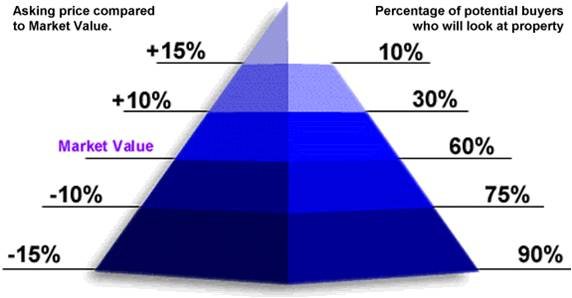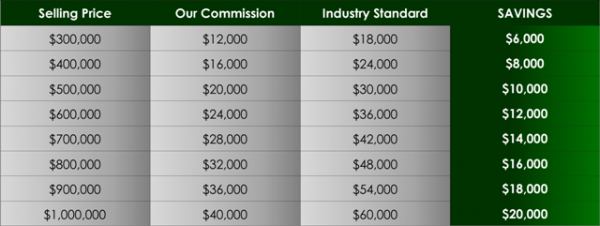
Pricing your own home is hard, what with all the history and hopes this magic number entails. Of course, you want to make a profit. Of course, all that money you spent installing a swimming pool or a half-bath will be recouped, because you’re leaving your digs in better shape than when you bought it, right?
Well, not necessarily. Too many home sellers fall prey to myths about home pricing that seem to make sense at first, but don’t jibe with the reality of real estate markets today. To make sure you haven’t bought into any of this malarkey—since the buyers you’re trying to woo sure haven’t—here are some common pricing myths you’ll want to rinse from your brain so you kick off your home-selling venture with realistic expectations. It’s time to get real, folks!
Price your house high to make big bucks
We know what you’re thinking: “Hey, it’s worth a shot!” But if you start with some sky-high asking price, you’ll soon come back to Earth when you realize that an overpriced home just won’t sell.
While the payday might sound appealing, you’re actually sacrificing your best marketing time in exchange for the remote possibility that someone will overpay for your home. Though certain buyers might be suckered in, this become far less likely if they’re working with a buyers agent who will know all too well when a home is overpriced, and advise their client to steer clear. And this can lead to problems down the road (as our next myth indicates).

If your home’s overpriced, it’s no big deal to lower it later
Sorry, but overpricing your home isn’t easily fixed just by lowering it later on. The reason: Homes that have lingered on the market for months—or that have undergone one or more price reductions—make buyers presume that something must be wrong with it. As such, they might still steer clear, or offer even less than the price you’re now asking.
Bottom line: Price your home appropriately from the beginning for your best shot at having a quick and easy sale. As you can see from the illustration above, overpricing by just 10% means only 30% of available buyers will even look at your home. Website after website provide housing pricing stats these days and buyers are terrified of overpaying particularly with pricing already pushing higher and higher… Pricing properly however can mean bidding wars and a much better net result!
Pricing your home low means you won’t make as much money
Similarly, sellers are often leery of pricing their home on the low end. But as counterintuitive as this seems, this strategy can often pay off big-time. Here’s why: Low-priced homes drum up tons of interest, which could result in a bidding war.
You can add the cost of any renovations you’ve made
Let’s say you overhauled your kitchen or added a deck. It stands to reason that whatever money you paid for these improvements will be recouped in full once you sell—after all, your home’s new owners are inheriting all your hard work.
The reality: While your renovations might see some return on investment, you’ll rarely recoup the whole amount. On average, you can expect to get back 64% of every dollar you spend on home improvements. Plus that profit can vary greatly based on which renovation you do.
Check out this list of common renovations know what you can actually expect.
A past appraisal will help you pinpoint the right price
If you have an appraisal in hand, from when you bought or refinanced your house, you might think that’s a logical place to start to price your home. It’s not!
An appraisal assigns your home a value based on market conditions at a specific date, so it becomes old news very quickly. In fact, lenders typically won’t accept appraisals that are more than 60 days old. Since lenders know markets can change in six months’ time, it’s important for sellers to understand that a previous appraisal is never a reliable source for the current value of a home.
Your agent might overprice the house to make a bigger commission
While it’s true that an agent’s commission is based on the selling price of a house, the disparity will end up being negligible. For example, the difference in commission between a $300,000 house and one that’s $310,000 is about $100.
No real estate agent is going to lose a sale for the sake of a hundred dollars, though inversely…. Some agents may be inclined to lead you to believe you can get more for your home than you truly can in hope that you will list with them with stars in your eyes, then down the road you’ll end up reducing price and they will still be the ones getting paid.
Full Service Marketing & The Latest Innovative Technology for a 1% Listing Fee

